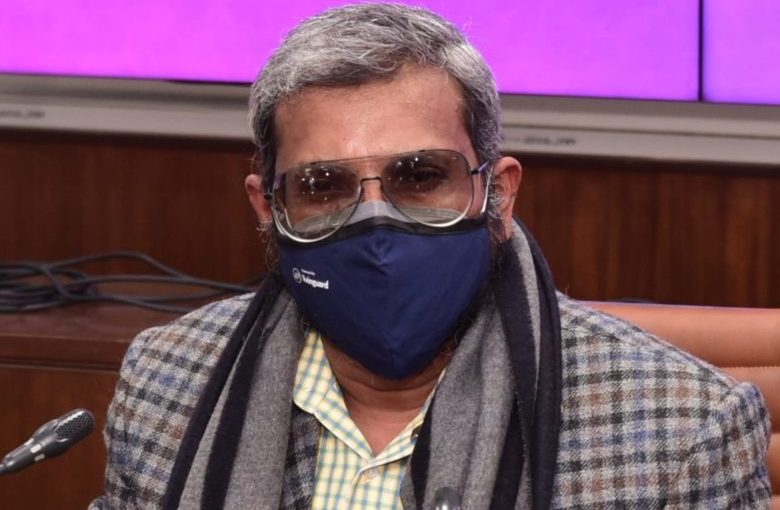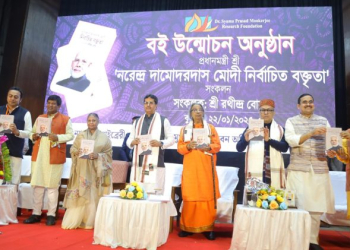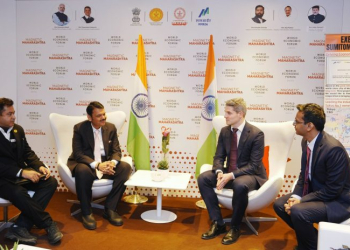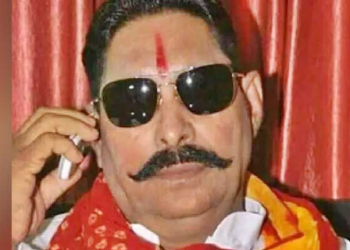Chandigarh: All arrangements have been made for the counting of ballots at 66 locations for the 117-member Punjab assembly elections from 8 a.m. on Thursday, Chief Electoral Officer (CEO) S. Karuna Raju said on Wednesday.
He said three-tier security measures have been set up with deployment of 45 companies of Central armed police forces at all 117 counting centres. A total of 7,500 personnel will be deputed for the counting process in the state.
The CEO said that a 100-m radius around the counting centres has been declared a ‘pedestrian zone’ and no one will be allowed to drive in that zone.
Nearly 72 per cent of over 2.14 crore voters in Punjab turned out on February 20 to elect the 117-members House. This is the lowest voting percentage compared to three previous assembly polls.
A total of 1.54 crore people exercised their franchise out of which there were 81.33 lakh men and 73.35 lakh women. As many as 282 transgenders voted. These polls had the highest-ever 1,304 candidates in the fray.
Punjab has seen a multi-cornered contest with hot seats comprising Amritsar (East) from where Congress state unit chief Navjot Sidhu is in the race to retain it, and Dhuri from where AAP’s chief ministerial face Bhagwant Mann is trying luck for the first time.
The youngest in the political landscape is controversial crowd-puller candidate Sidhu Moosewala, while the eldest one is Shiromani Akali Dal (SAD) patriarch Parkash Singh Badal, 94.
In the Punjab polls, 1,304 candidates — 1,209 men, 93 women and two transgenders — are in the fray.
Of the 1,304 candidates — 231 are from national parties, 250 from state, 362 from unrecognised parties, and 461 independent candidates. A total of 315 contesting candidates are with criminal antecedents.
In the fray are three prominent parties — the ruling Congress, the Aam Aadmi Party (AAP) and the Sanyukt Samaj Morcha, and two alliances — the SAD-BSP and the BJP-Punjab Lok Congress (PLC).
The other hot seats include Patiala (Urban), the ‘royal’ bastion of Congress rebel Capt Amarinder Singh, whose fledgling PLC is contesting the polls in alliance with the BJP and SAD (Sanyukt); Chief Minister Charanjit Channi’s Chamkaur Sahib, a reserved seat that he has won three consecutive times.
Channi, the chief ministerial face who was elevated after Amarinder Singh’s resignation on September 18 last year, is the first Scheduled Caste Chief Minister of a state that is home to 32 per cent Scheduled Caste population, the highest in the country.
He is contesting from Bhadaur in Barnala district, a second seat, apart from Chamkaur Sahib.
Five-time Chief Minister Badal, 94, is SAD’s nominee from his bastion Lambi, while his son Sukhbir is contesting from his ‘safe’ seat Jalalabad that he won in 2017 with 18,500 votes by defeating his nearest rival Mann of the AAP.
Months after he came to the rescue of labourers walking back home in the days of Covid-19 lockdown, actor and philanthropist Sonu Sood himself was seen hitting the streets.
With folded hands and a smile on his lips, he was going from house to house in scores of villages drumming up support for his sister Malvika Sood Sachar contesting the polls from her hometown Moga on Congress ticket.
Leaving behind his celebrated tag of a top Punjabi rap singer with fans across the globe, singer-turned-actor-politician Sidhu Moosewala, who was booked for allegedly promoting gun culture and violence, is making his electoral debut as a Congress candidate from Mansa.
During campaigning, he does not hesitate to fold his hands and bow his head before the commoners to seek votes for the party.
Political observers told IANS that the BJP this time has focused on the Hindu dominated at least 23 constituencies as a political field with the immense potential for making Prime Minister Modi’s three election meetings.
Punjab’s Hindu stronghold constituencies include Pathankot, Dinanagar, Mukerian, Dasuya, Hoshiarpur, Phagwara, Ludhiana, Amritsar, Jalandhar, Ferozepur, Abohar, Fazilka and Rajpura where hoardings of Ram Temple of Ayodhya in backdrop with inscription of Ram Mandir and Jai Shri Ram have become a common sight.
In the 2017 Assembly elections, the Congress had won an absolute majority by winning 77 seats in the 117-member Punjab assembly and ousted the SAD-BJP government after 10 years.
The AAP had emerged as the second-largest party, winning 20 seats.
Shiromani Akali Dal (SAD) won 15 seats, while the BJP, which had a coalition government with the Akali Dal in Punjab from 2007 to 2017, secured three seats.
(IANS)


















